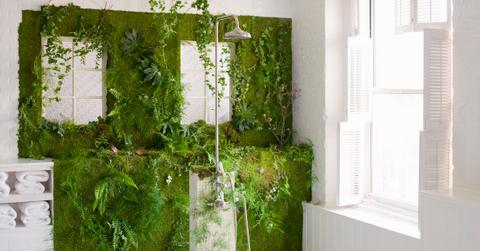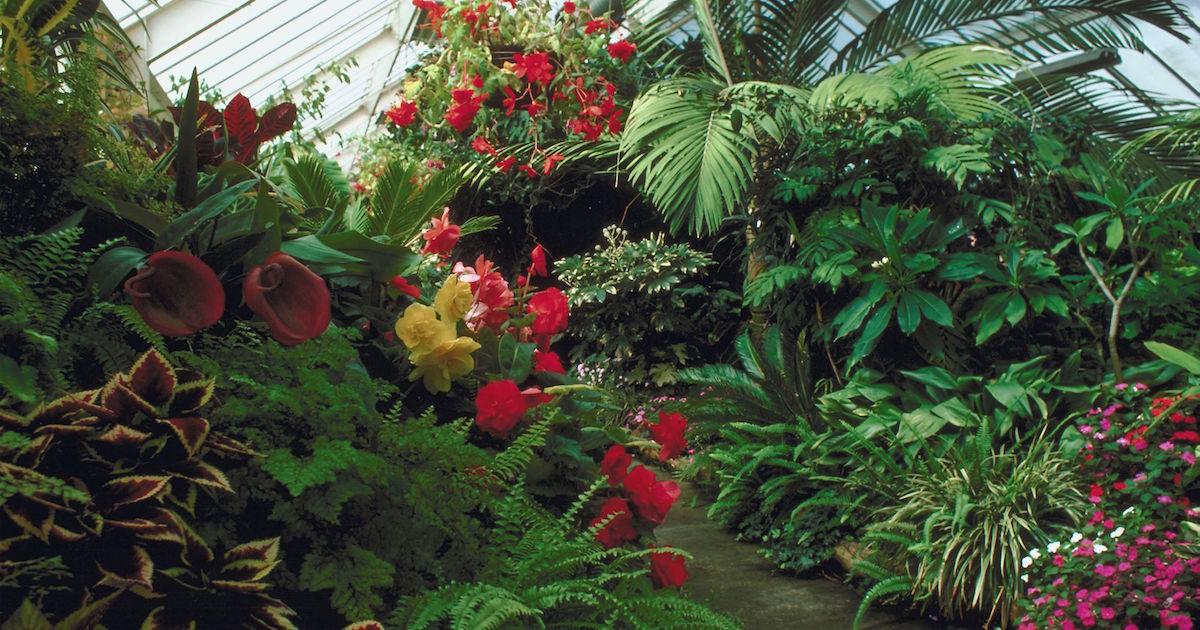Exploring the Secrets of Vertical Vegetable Gardening, From Top to Bottom
Published March 25 2021, 4:14 p.m. ET

At first, the idea of planting vegetables vertically might seem unusual, but it’s actually more common than one might think, and far easier than it sounds. And with the right tools and information it can be a great way to save on gardening space. If you live in the city, in an apartment, or if you simply lack the space to grow a full backyard vegetable gardening, then vertical vegetable gardening could be the game-changing solution for you.

What is vertical vegetable gardening?
Vertical vegetable gardening works best for plants that grow on vines — cucumbers, summer squash, winter squash, melons, peas, pole beans, and tomatoes are a few prime examples. It's most commonly used by those who don’t have access to much space, like city-dwellers. Only certain types of vegetables grow well in vertical gardens, namely those with vines that can grow up the side of a wooden trellis, nets, wire cage, fence, teepee, tripod, a-frame, post, or stake.
According to Gardening Know How, vertical vegetable gardens grow best in full sunlight, in areas where vining veggies have a chance to climb. Because of this, city apartments with access to sun-facing balcony railings are particularly good spots to start a vertical garden.
Why plant a vertical vegetable garden?
Besides the fact that it will save gardening space, vertical vegetable gardening many benefits not always found in traditional gardening methods. According to Harvest to Table vertical gardening can protect fruits and vegetables from slugs, snails, and other garden-variety pests that might otherwise be able to access them from the ground.
Likewise, in traditional gardens, cucumbers, squash, and tomatoes often end up sitting in the dirt, growing slightly deformed and occasionally succumbing to bacteria and rot. Grown on vines, like they are supposed to, enables them to grow straighter, longer, and often, healthier.
How to start a vertical vegetable garden:
Starting a vertical garden is fairly easy. You’ll first need to select your vegetables, and a trellis or vertical stand to grow them upon. Most vine vegetables will grow on any type of trellis, though pole beans are obviously best suited for poles and larger vegetables like squash require sturdier materials to climb upon.
Like all gardening, even vertical vegetables need soil to sink their roots into. Any container will do, including: plastic storage bins, washtubs, coffee cans, wooden crates, or plastic buckets. Whatever container you choose, though, make certain that it has adequate drainage. According to Gardening Know How, once you have selected that container, you should fill it with a decent mix of peat moss, potting soil, and good compost — homemade is best.
Gardening Know How also recommends using shelves to facilitate the growth of several different types of vegetables. Place the shelves directly adjacent to whatever vertical surface you plan to use. As mentioned above, fences, metal cages, nets, even balcony railings will work for vining vegetables. If your vegetables are heavier, like melons or squash, a sturdy open ladder can act as a makeshift trellis in a pinch. Just be certain that your plants are close enough to grab hold as they grow.
As you can see, starting a vertical vegetable garden isn't particularly difficult. Like any garden, however, the hardest part is maintaining it. Keep your plants watered (but not too moist), make sure they receive adequate sunlight, and above all, once they start yielding fruits and vegetables, don't let them wither on the vine. The best part of home gardening is the self-sustainability of the process, so make the most of it.